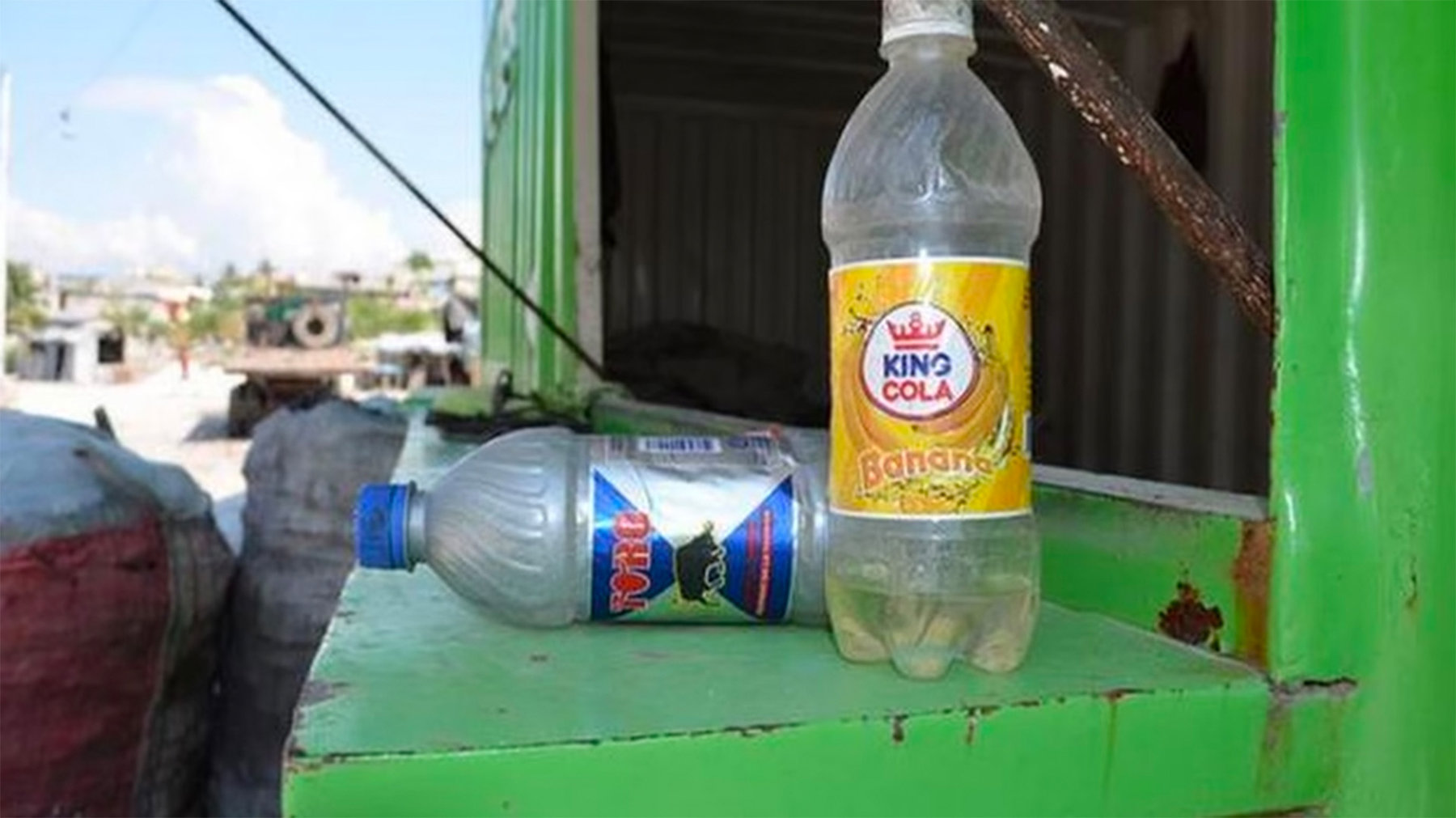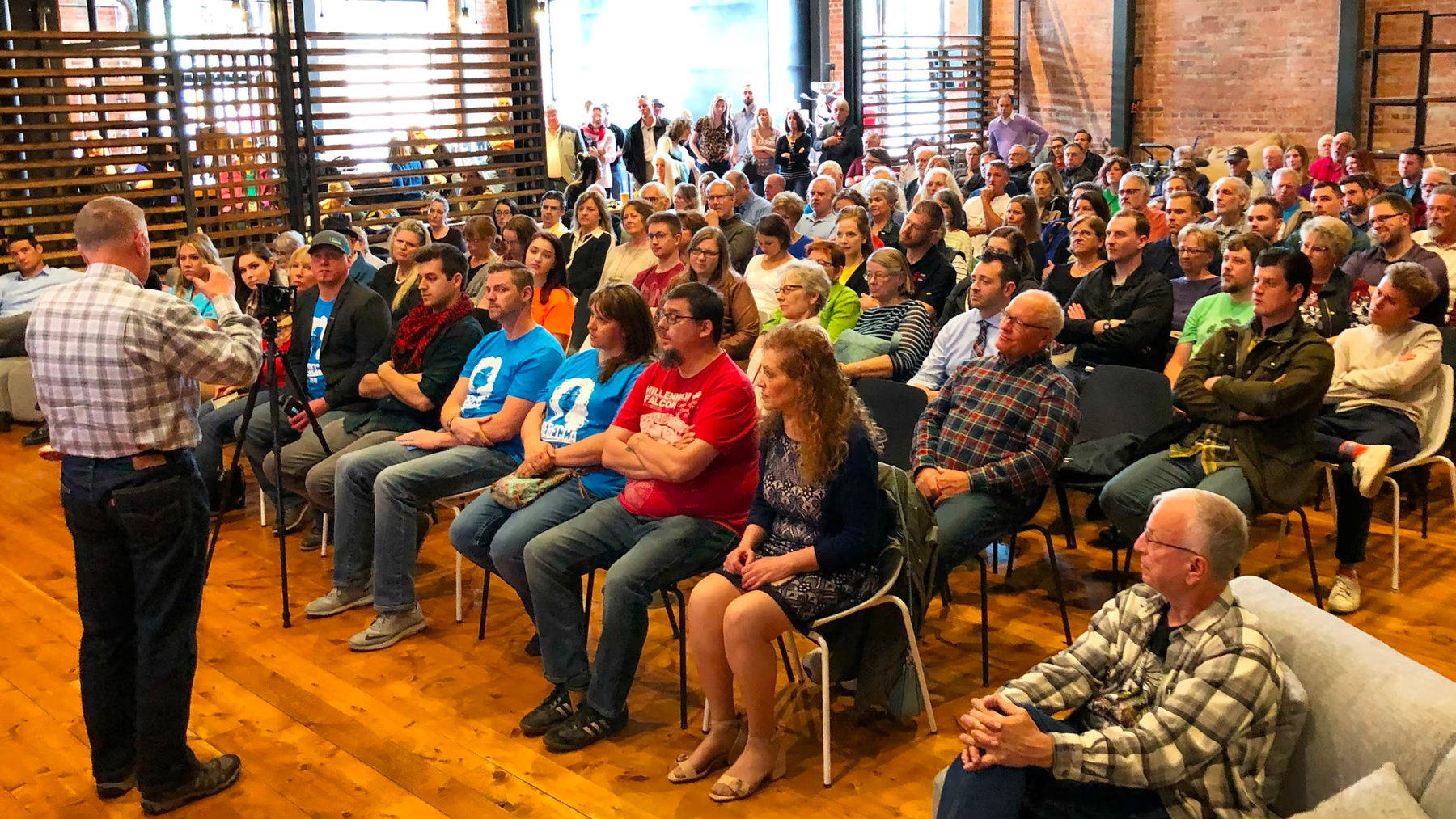What if you could help create jobs for impoverished people and simultaneously address an environmental problem? An innovative young company in Pittsburgh is doing precisely that—dealing with Haiti’s particularly acute problem of discarded plastic bottles by hiring people there to collect that plastic waste, which then gets cleaned and shredded, turned into thread, and woven into fabric for use in sports apparel, boots and shoes, messenger bags and totes, and other goods.
Haiti is, of course, not alone among poor countries in being plagued by plastic waste. And Haiti has many far more serious problems, including persistent poverty and 40 percent unemployment.
The company that’s working to address that triad of Haitian problems—poverty, unemployment, and plastic waste—is Thread, which I heard about when I was in Pittsburgh in September to report for our American Futures series.* Several people I spoke with about creative startups mentioned Thread. So I arranged for an interview there and got to spend time with three of the five people who operate this growing company that manages to be both immensely practical and admirably forward-thinking.
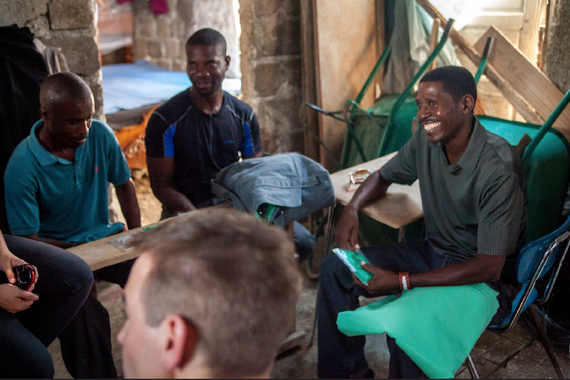
When Rosenberger got back to the U.S., he began to do research on what could be done with all that plastic trash. He soon learned that plastic bottles could be turned into fabric, and he knew he had found an idea to create jobs, help impoverished Haitians, and address the terrible waste problem there.
He quickly realized he needed help, so turned to a friend of his from Penn State, Lee Kimball, who had experience in non-profit management and an MBA. Kimball was drawn by Thread’s core premise of finding sustainable solutions to global problems. He is now the COO of Thread. Rosenberger also brought in Frank Macinsky, another Penn State graduate, with whom he had previously worked at an ad agency. Macinsky is now Thread’s director of marketing.
In its infancy, Thread received advice and crucial early investment funds from the Idea Foundry, a business incubator in Pittsburgh that I’ll write about in a later installment here. Freelancing at the time at the Idea Foundry, Jenna Knapp—another Penn State grad who also has a degree from Carnegie Mellon in public management—was assigned to help Thread turn their idea into a sustainable business. She’s been with the company ever since and is its director of production.
Kelsey Halling is the only member of the Thread team who wasn’t a Penn State undergrad. She studied business administration at the University of Pittsburgh and has experience in the non-profit sector. Bothered by some of the inefficiencies she observed in non-profits, she found herself drawn to the idea of social enterprise—solving social and environmental problems with for-profit business models—and now works as Thread’s “director of impact.”
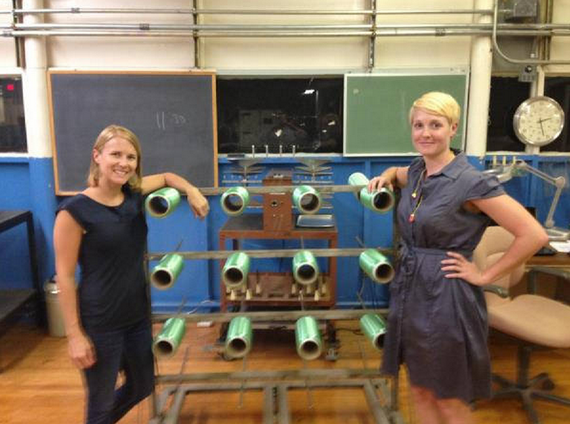
All told, that’s just five people. Not even enough to field a softball team. But they’re thinking like major leaguers in their efforts to alleviate poverty by providing jobs, while simultaneously mitigating environmental harm. And they’ve worked out productive partnerships with other organizations that are pursuing the same goal, as I’ll explain below.
Sitting in their tiny one-room headquarters in Pittsburgh’s East Liberty neighborhood (home to Google’s offices there and tech startups), I was impressed by both the youthful idealism and the informed hardheadedness the Thread team displayed as they took me through the logic behind the company and the processes of its operation.
This video by Bob Goodwin, one of the co-founders of Executives Without Borders, effectively shows the scope of the plastic-trash problem in Haiti and explains how the bottle-collection process works to help people there and deal with the waste. It’s worth taking five minutes to watch it:

The polyester fabrics that Thread is manufacturing are “100 percent post-consumer material,” and require about 80 percent less energy and about 90 percent less water to produce than virgin polyesters made directly from oil. Rosenberger notes the tremendous amount of “greenwashing” by apparel manufacturers in the United States who tout their products as being environmentally responsible but aren’t. “It’s an opaque industry that’s in trouble because, despite all the spin, customers increasingly understand they’re not really socially responsible.” By creating a 100 percent transparent supply chain, Rosenberger says, “We’ll be able to do for clothing what Whole Foods did for groceries.”
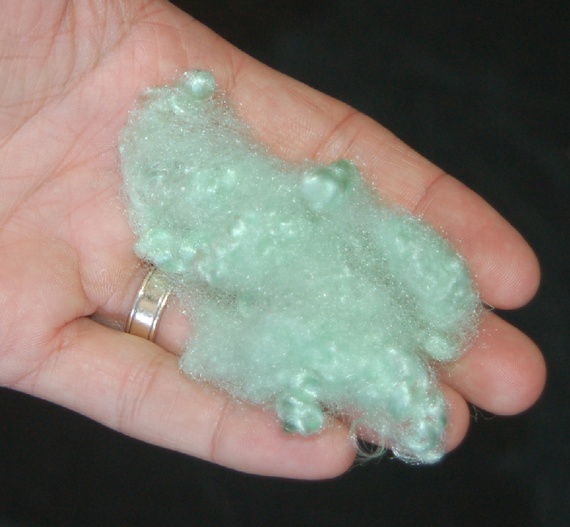
“We wanted to offer a real way for manufacturers to be authentic in their claims about their fabrics. We’re a social company first. Every yard of our fabric that someone buys changes people’s lives.”
Thread’s social responsibility is the reason that another Pittsburgh entrepreneur became its first customer. Wendy Downs owns Moop, a small company that makes various kinds of bags—messenger bags, totes, backpacks, etc.—and now uses Thread fabrics in some of its product lines. (Moop is an interesting company in its own right and I’ll be writing about it here in the near future.) When I spoke with Downs about her decision to purchase fabric from Thread, she told me that she cares about knowing “the bigger picture” of how her suppliers operate so that she can be true to her own concern to be as socially responsible as possible in the production of her bags.
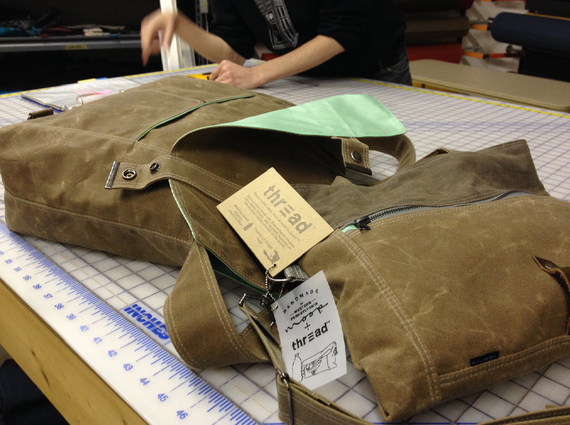
The Thread team told me that they’re now working to pin down sales agreements with large brands and hope to be able to make announcements about that soon. Rosenberger says that because consumers want to buy responsibly made products, the demand for Thread’s fabrics will continue to grow.
This small Pittsburgh company is chasing big goals. And succeeding. Social enterprise works, Rosenberger told me as I was leaving Thread’s office. “Business is our hope for ending the problems we face. Business can be a sustainable catalyst for positive change if you do it right.”

